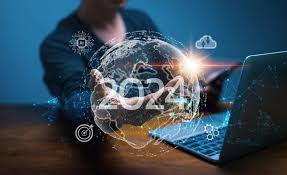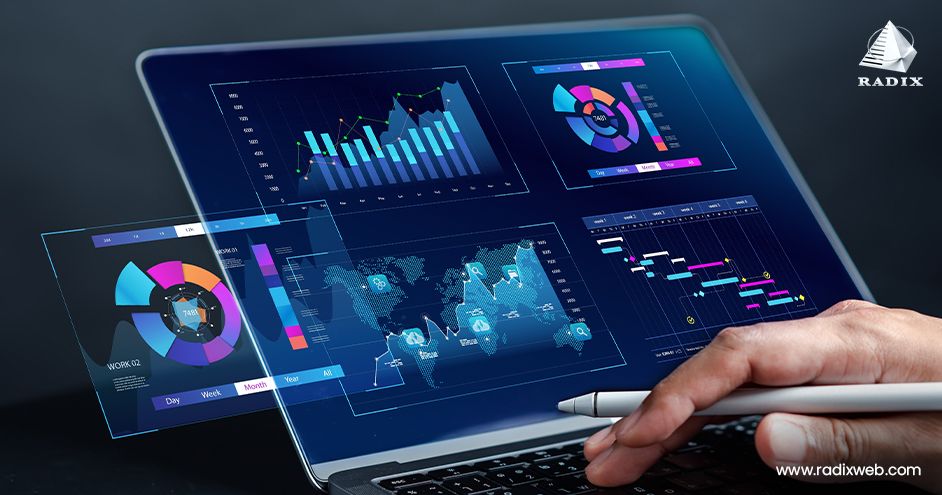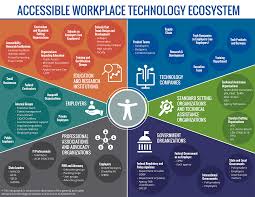Exploring Fascinating New Technologies of 2023
The world of technology is ever-evolving, with new innovations emerging at a rapid pace. As we progress through 2023, several groundbreaking technologies are capturing the attention of experts and enthusiasts alike. From advancements in artificial intelligence to revolutionary developments in renewable energy, these technologies promise to shape the future in exciting ways.
Artificial Intelligence and Machine Learning
Artificial Intelligence (AI) continues to be at the forefront of technological innovation. In 2023, AI systems have become more sophisticated, with improved natural language processing capabilities and enhanced machine learning algorithms. These advancements enable AI to better understand and respond to human emotions and intentions, making interactions with AI-powered devices more seamless than ever before.
One notable development is the integration of AI into healthcare. AI-driven diagnostic tools are now capable of analysing medical images with remarkable accuracy, assisting doctors in early detection of diseases such as cancer. Furthermore, AI is being utilised to personalise treatment plans based on individual patient data, leading to more effective healthcare outcomes.
Quantum Computing
Quantum computing has long been a topic of interest for researchers, and recent breakthroughs suggest that it may soon become a practical reality. Unlike classical computers that use bits as units of information, quantum computers use qubits, allowing them to perform complex calculations at unprecedented speeds.
This year has seen significant progress in making quantum computing more accessible for commercial use. Companies are developing quantum processors that can tackle problems beyond the reach of traditional computers, such as optimising supply chains and solving intricate scientific equations. As this technology matures, it holds the potential to revolutionise industries ranging from finance to pharmaceuticals.
Renewable Energy Innovations
As the world increasingly focuses on sustainability, renewable energy technologies are advancing rapidly. In 2023, solar power has seen remarkable improvements with the development of perovskite solar cells. These cells offer higher efficiency rates while being cheaper and easier to produce than traditional silicon-based cells.
Additionally, wind energy technology is evolving with the introduction of floating wind turbines designed for deep-sea deployment. These turbines can capture stronger winds further offshore, significantly increasing energy output while minimising environmental impact on marine ecosystems.
Augmented Reality (AR) and Virtual Reality (VR)
Augmented Reality (AR) and Virtual Reality (VR) continue to transform how we interact with digital content. In 2023, AR applications have expanded beyond gaming into fields such as education and retail. For instance, AR is being used in classrooms to create interactive learning experiences that engage students more effectively than traditional methods.
Meanwhile, VR technology is enhancing remote work by creating immersive virtual environments where teams can collaborate as if they were physically present together—bridging geographical gaps like never before.
Biotechnology Advancements
The field of biotechnology has witnessed remarkable strides this year—particularly within genetic engineering techniques like CRISPR-Cas9 gene editing toolkits which allow scientists precise control over DNA sequences enabling targeted treatments for genetic disorders previously thought incurable!
This breakthrough opens doors not only towards curing diseases but also improving crop yields via genetically modified organisms designed specifically withstand harsh climatic conditions ensuring food security globally amidst climate change challenges ahead us all face collectively moving forward together united purpose-driven mission shared humanity’s common good benefit all life Earth itself included too!
Conclusion
The technological landscape continues expanding horizons offering limitless possibilities across diverse sectors impacting daily lives positively transforming societies worldwide alike! As we embrace these innovations responsibly ethically thoughtfully considering implications each step along way let us remain hopeful optimistic about future holds store next generations come inherit legacy left behind today pioneers visionaries dreamers daring boldly explore uncharted territories tomorrow beckons call adventure awaits discovery anew anew…
Exploring the Cutting-Edge: 8 FAQs on the Latest Technological Innovations
- What are the latest advancements in artificial intelligence?
- How is quantum computing revolutionising the tech industry?
- What renewable energy innovations are making waves in 2023?
- How is augmented reality being used beyond gaming applications?
- What are the potential benefits of virtual reality technology?
- What breakthroughs have been made in biotechnology this year?
- Are there any notable developments in robotics and automation technologies?
- How do emerging technologies like blockchain and IoT impact our daily lives?
What are the latest advancements in artificial intelligence?
Recent advancements in artificial intelligence (AI) have been remarkable, particularly in areas such as natural language processing, machine learning, and computer vision. AI systems are now capable of understanding and generating human-like text with impressive accuracy, thanks to sophisticated language models. Machine learning algorithms have become more efficient, enabling faster data processing and improved predictive capabilities across various industries. In computer vision, AI can now recognise and analyse images with unprecedented precision, which is being utilised in fields ranging from healthcare diagnostics to autonomous vehicles. Moreover, AI-driven personalisation is enhancing user experiences by tailoring services and content to individual preferences. These advancements are not only pushing the boundaries of what AI can achieve but also opening up new possibilities for its application in everyday life.
How is quantum computing revolutionising the tech industry?
Quantum computing is revolutionising the tech industry by offering unprecedented processing power and capabilities that surpass the limitations of classical computers. Unlike traditional computers that operate on binary bits, quantum computers use quantum bits or qubits, which can exist in multiple states simultaneously. This parallel processing enables quantum computers to solve complex problems exponentially faster than classical computers, making them ideal for tasks such as cryptography, drug discovery, and optimisation challenges. The potential impact of quantum computing on industries like finance, healthcare, and cybersecurity is immense, paving the way for groundbreaking innovations and transformative advancements that were once considered unattainable.
What renewable energy innovations are making waves in 2023?
In 2023, several renewable energy innovations are making waves in the technological landscape. One notable advancement is the emergence of perovskite solar cells, which offer higher efficiency rates and lower production costs compared to traditional silicon-based cells. These cells are revolutionising the solar energy sector by providing a more sustainable and cost-effective alternative for harnessing solar power. Additionally, floating wind turbines designed for deep-sea deployment have gained attention for their ability to capture stronger offshore winds, leading to increased energy output while minimising environmental impact. These innovations signify a shift towards more efficient and environmentally friendly renewable energy solutions that have the potential to reshape the future of sustainable energy production.
How is augmented reality being used beyond gaming applications?
Augmented Reality (AR) is increasingly finding applications beyond the realm of gaming, with its versatile technology being utilised in various industries and fields. In education, AR is revolutionising the learning experience by creating interactive and immersive lessons that engage students in a dynamic way. Retailers are leveraging AR to offer virtual try-on experiences, allowing customers to visualise products before making a purchase online. Moreover, AR is being used in architecture and design to create virtual prototypes and simulate real-world scenarios, streamlining the design process and enhancing collaboration among teams. These diverse applications of AR demonstrate its potential to transform how we interact with information and digital content beyond entertainment.
What are the potential benefits of virtual reality technology?
Virtual reality technology offers a myriad of potential benefits across various industries and applications. One key advantage is its immersive nature, allowing users to experience virtual environments as if they were physically present, which can enhance training simulations, educational experiences, and entertainment platforms. VR technology also has the potential to revolutionise healthcare by enabling remote surgeries, patient rehabilitation, and mental health therapies. Moreover, in the realm of architecture and design, VR can streamline the prototyping process and provide clients with realistic 3D visualisations of projects. Overall, the versatility of virtual reality technology holds promise for transforming how we interact with digital content and improving efficiency and effectiveness in diverse fields.
What breakthroughs have been made in biotechnology this year?
In the realm of biotechnology this year, significant breakthroughs have been achieved, particularly in the field of genetic engineering. Scientists have made remarkable strides in utilising advanced tools like CRISPR-Cas9 gene editing technology to precisely manipulate DNA sequences. These breakthroughs hold immense promise for targeted treatments of genetic disorders that were once considered incurable. Furthermore, the application of biotechnology extends beyond human health to agriculture, where genetically modified organisms are being developed to enhance crop yields and resilience to environmental challenges. The advancements in biotechnology in 2023 signify a transformative shift towards personalised medicine and sustainable agricultural practices that have the potential to positively impact both human health and food security on a global scale.
Are there any notable developments in robotics and automation technologies?
In the realm of robotics and automation technologies, notable advancements have been making waves in recent years. From the integration of artificial intelligence to enhance robotic decision-making capabilities to the development of collaborative robots that work alongside humans in various industries, the landscape of robotics is evolving rapidly. Automation technologies are also seeing significant progress, with the implementation of smart systems that streamline processes and increase efficiency. These innovations not only promise to revolutionise manufacturing and logistics but also have far-reaching implications across sectors such as healthcare, agriculture, and transportation. As we witness these remarkable developments unfold, the future of robotics and automation holds immense potential for transforming how we live and work in the digital age.
How do emerging technologies like blockchain and IoT impact our daily lives?
Emerging technologies such as blockchain and the Internet of Things (IoT) are revolutionising our daily lives in profound ways. Blockchain technology, known for its secure and transparent nature, is transforming industries by enabling secure transactions, enhancing data privacy, and streamlining processes. From financial transactions to supply chain management, blockchain is reshaping how we interact with digital assets and conduct business. On the other hand, IoT devices are connecting our physical world to the digital realm, creating smart homes, efficient energy systems, and interconnected networks that enhance convenience and productivity. The integration of blockchain and IoT technologies is paving the way for a more interconnected and secure future where data is managed efficiently, transactions are transparent, and everyday tasks are automated for a seamless experience.



